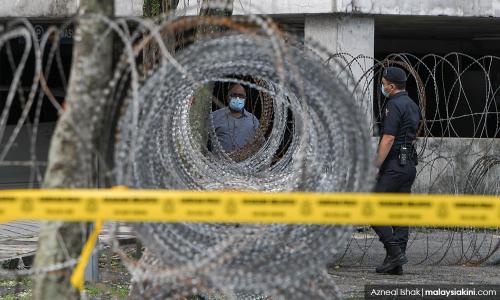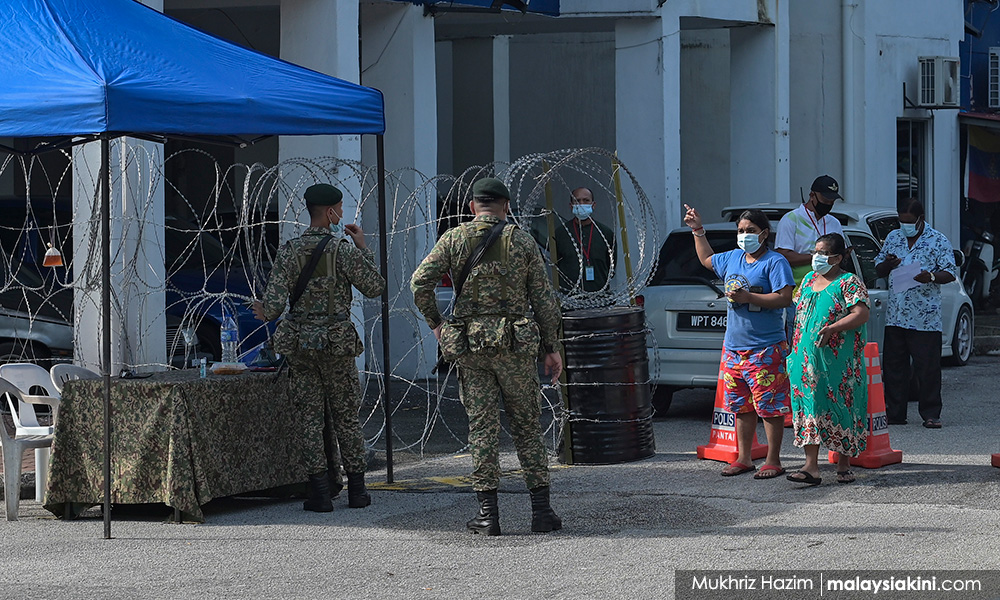MP SPEAKS | Govt must spend more to win Covid-19 war
MP SPEAKS | After weeks of debate, Malaysia’s federal government finally decided to put the country under a “total lockdown”.
Malaysia needs the “total lockdown” to bring Covid-19 under control but we will lose the fight against the pandemic if this lockdown is not accompanied by assistance for the most vulnerable and disadvantaged.
Beating Covid-19 doesn’t only mean bringing the cases down to zero and vaccinating everyone but also ensuring that lives are not ruined by the pandemic’s socio-economic fallout.
By most metrics, the Perikatan Nasional (PN) government has failed miserably, even though they have the powers of an emergency at their disposal.
I have outlined previously the kinds of aids that should be given. So have my colleagues in Parliament and numerous civil society bodies: increased BSH (Bantuan Sara Hidup) and JKM (Welfare Department) payments, expanding the wage subsidy programme, as well as support for education (how about finally giving schoolchildren the PDPR devices they were promised?) and healthcare.
And the government mustn’t squander Phase 1 and Phase 2 like they did with the other MCOs.
This time, they must work to genuinely ramp up testing, contact tracing as well as the all-important vaccination - without making Malaysians despair over confusing or unfairly enforced SOPs and opaque registration systems.
Of course, all of this will cost money. But this PN government seems unfortunately and unreasonably shackled to the ideology of austerity.
Facing a pandemic and unprecedented socio-economic turmoil, Prime Minister Muhyiddin Yassin complains that “…we don’t have much money left.”
Finance Minister Tengku Zafrul Abdul Aziz has also denied that the government has used the Emergency Ordinance to raise revenue or increase spending beyond the statutory debt ceiling approved by Parliament in August 2020.
But the government should be spending more this time. Austerity means death - literally in the pandemic.
Rather than raid the National Trust Fund, the government should borrow instead. As noted, this is often a dirty word in Malaysian policy circles.
But these are not normal times. So why not do something genuinely ground-breaking and borrow to protect the people?
Borrowing money is relatively cheap now. And what is the point of boasting about our sovereign credit ratings if we don’t utilise them when the rakyat’s lives and livelihoods are at stake?
Better yet - end the emergency and summon Parliament to approve changes to the statutory debt ceiling. This has been done before: Malaysia, in fact, raised its debt/GDP ratio three times previously.
Of course, everything has to be paid for sooner or later. So that is why the government has to raise the operational expenditure (opex) limit of 15 percent on debt servicing. Indeed, more needs to be spent on opex right now.
Another point: there is a sunset clause in the Covid-19 Fund. This has to be pushed further away. This will help circumvent the current balance requirement.
Of course, it’s not just a matter of throwing money at the problem and hoping it will go away.
Money has to be well spent and on things that matter and are scientifically proven. When mainstream scientific advice discourages sanitisation of public areas, why are we still continuing this charade of hygiene theatre? The money is better spent on improving ventilation for instance - proven factors that actually can alleviate the spread of Covid-19.
Additional spending on the country’s Covid-19 cannot be done piecemeal or reactively. Every ringgit we spend in this fight must be part of a long-term plan: to ensure our economy is more resilient so that it can withstand biosecurity shocks like this in the future.
And in doing so, we just might be able concurrently to address other legacy problems: low wages, low productivity and lagging technology adoption.
Again, Parliament can provide the roadmap and legitimacy for all of this - but it must be allowed to sit.
But, besides Parliament being allowed to sit, genuine bipartisan gestures in allowing for broad-based participation in the leadership and decision-making over the national Covid-19 response is needed.
So far, all that the PN government has offered in this regard has been cosmetic.
And, for whatever reason, it has also been lukewarm, if not icy, to bona fide, patriotic advice from professional bodies and civil society.
Has this stance served Malaysia well? A new approach is needed.
This will require political leadership. Yes, the people are responsible for fighting the crisis: but they must be inspired; their trust and confidence won, respected and maintained. That is what leadership means.
The political players who brought the current government together were fiercely determined to win power. Where is that enthusiasm when it comes to protecting and saving the lives of the rakyat?
The political survival of politicians will not matter if a country and its people suffer, even die.
If we fail to respond to the crisis in the correct way, the scars will be deep and long lasting, holding, and pulling Malaysia further back.
NIK NAZMI NIK AHMAD is the PKR chief organising secretary and Setiawangsa MP.
The views expressed here are those of the author/contributor and do not necessarily represent the views of Malaysiakini.
RM12.50 / month
- Unlimited access to award-winning journalism
- Comment and share your opinions on all our articles
- Gift interesting stories to your friends
- Tax deductable

